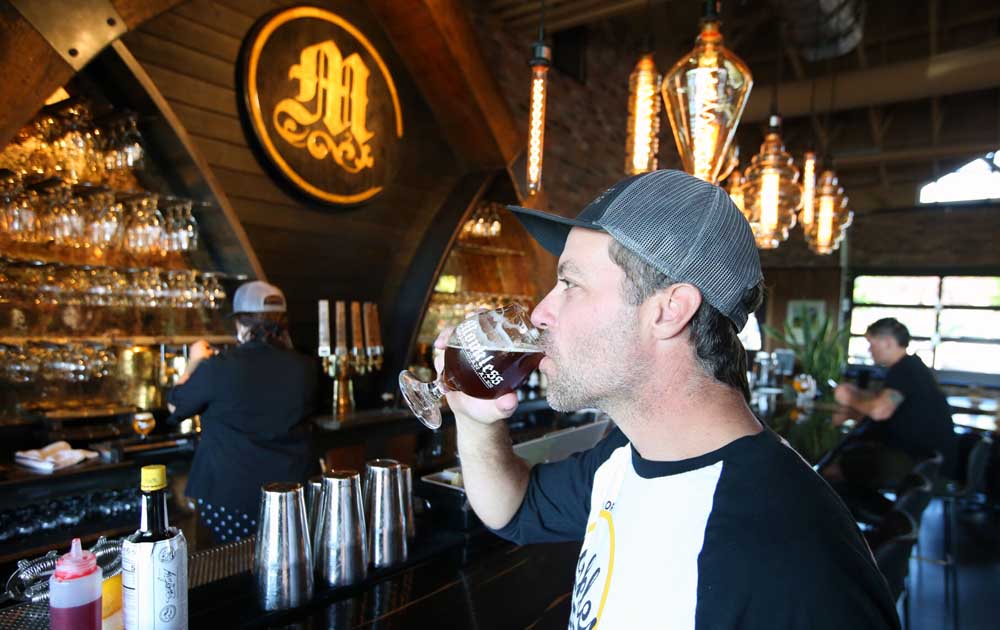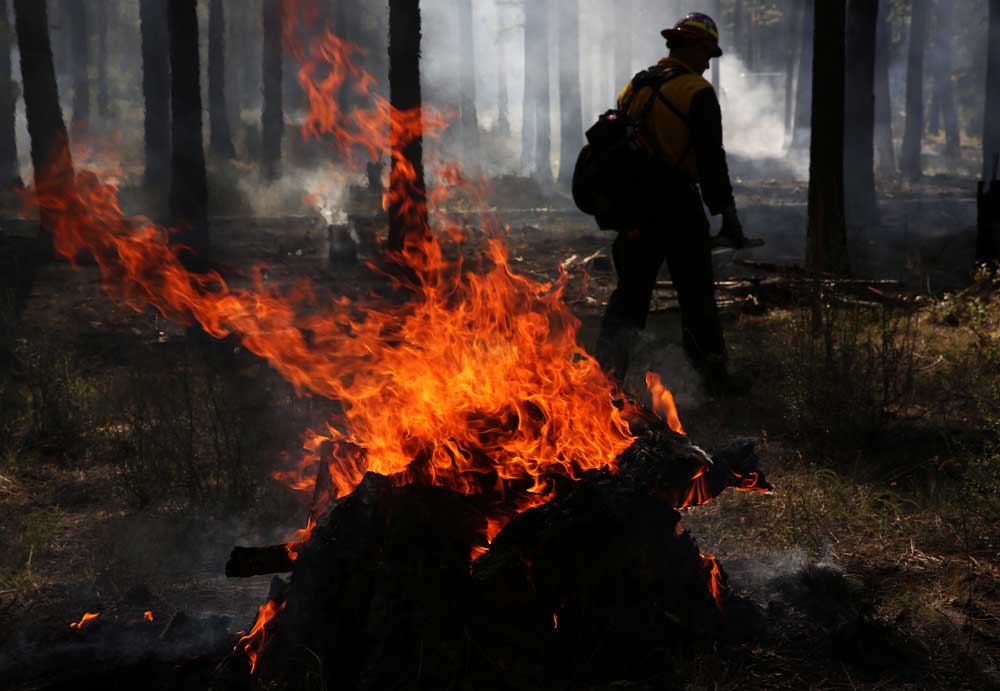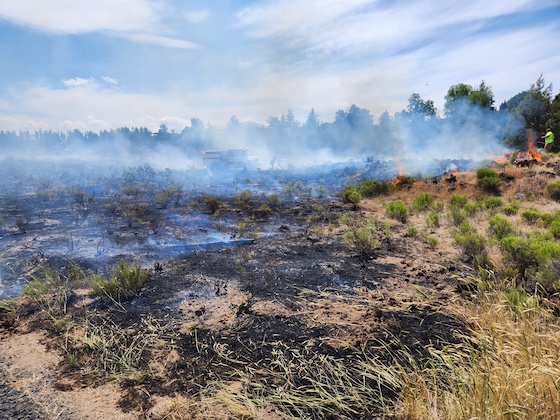Oregon hops acreage declining with craft beer sales
Published 1:00 am Tuesday, September 12, 2023

- Kyle Townsend of Bend drinks The FNG Belgian Abbey Ale at Monkless Belgian Ales in Bend. Changing habits have squeezed Northwest hops growers.
Hop acreage across Oregon decreased 11% this year from 2022, according to the U.S Department of Agriculture.
For decades, the Pacific Northwest cemented its reputation as a powerhouse for commercial hop production. According to the Oregon Hops Commission , the region’s ample rainfall, productive soil and moderate climate yield the high quality hops that are essential for countless breweries across the region. With more than 7,000 acres dedicated to growing the small, pinecone-shaped flower, Oregon is the third largest producer of hops in the country, only behind Idaho and Washington.
But now, as more people are turning away from craft beer, Oregon hop farmers are planting fewer or different varieties of hops. {span}Nationally, hop acreage decreased by 8% from 2022, according to the U.S Department of Agriculture.
Some breweries in Bend are expanding their drink menus in hopes of attracting more business.
“I think what we are seeing from a consumer standpoint is a shift in people’s drinking habits. More folks are choosing non-alcoholic options, so I think there’s an impact there. We’re seeing mocktails be a much more requested item,” said Robin Clement, the owner of Monkless Belgian Ales in downtown Bend.
While Clement has yet to see a decline in demand for craft beer at Monkless, she recognizes that the industry is declining and sales are likely to slow at Monkless as fewer tourists visit Bend during autumn.
“We haven’t seen sales be down yet this year but I think as a whole the industry is experiencing that,” Clement said. “But Bend is growing. Our beer tourism is strong. Bend has done such an amazing job in creating that culture in our community.”
Oregon is home to more than 300 craft breweries, which help to generate billions of dollars in revenue and wages throughout the state, according to the Oregon Beverage Alliance.
For Vance Wirtz, the brewer for Old St. Francis School in Bend, the shifting demand for new flavors of craft beer is likely hurting some hop growers, too. And with the rising popularity of cocktails, hard seltzers and nonalcoholic drinks, there are more players at the table to compete with, Wirtz said.
“A lot more breweries are trying to push the edge of the envelope by making beer that’s way more fruitful, and with less pine, less bitterness and less grassy characteristics,” Wirtz said.
In 2022, Wirtz won first place at the Barley Cup award for his fruit ale, Black Beary Temptation. “There’s a lot more demand for hop growers that are doing crossbreeding and producing these varieties, versus those old-school flavors from back in the day.”
Now, as traditional and once-profitable varieties of hops decline in popularity, hop farmers are looking to create new varieties and flavor profiles that will catch the eye of breweries and customers.
“I quit growing hops because there ain’t no money in it,” said Nate Safty, the previous owner of Deschutes Hop Farm in Redmond.
His farm was small by industry standards, Safty said, and wasn’t producing enough hops to be profitable.
He now sells plants to community members looking to grow hops in their backyards.
“There’s so many varieties, and everybody wants something unique and special. It takes three years to grow hop plants, so if you don’t have the right variety, you’re not gonna get anywhere,” Safty said.









